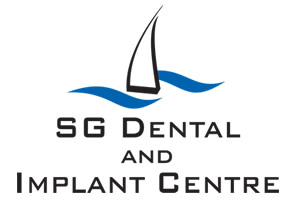Does The Surface Of Your Teeth Feel ‘Fuzzy’?
If so, here’s why you shouldn’t ignore it….
Can you run your tongue over both the front and back of your teeth and say that they feel entirely smooth? If you can, then congratulations, you are doing a great job of keeping your teeth clean and also probably already see the hygienist at our Burton dental practice on a regular basis. If the surface of your teeth feels a little rough or ‘fuzzy’, then you should almost certainly join the ranks of those who currently do.
You might ask what the problem is if your teeth don’t feel entirely smooth. After all, there is no obvious damage and they probably function normally too, so why should you be concerned? In today’s blog, we will examine what this seemingly innocuous ‘problem’ could lead to and offer suggestions on how to improve things.
Oral bacteria
Our mouths are full of bacteria. Some of it is good bacteria and some is potentially harmful to our teeth and gums, especially when they multiply to the point where their numbers become out of control. The ‘fuzziness’ that you can feel on your teeth is most likely a collection of this bacteria which has formed a film on the surface of your teeth. This is natural and is usually kept under control both through saliva washing it away and also when you brush your teeth.
Unfortunately, not all of this bacteria will necessarily be removed and especially if you don’t take care of your teeth as well as you could, the bacteria can combine with the minerals in your saliva and form a hardened material known as tartar. This is a hard substance that can’t simply be removed by brushing at home.
The problem with tartar
Aside from the way that your teeth might feel, tartar can be problematic and could, in some circumstances, eventually lead to tooth loss. As many of you will have read in previous blogs on Mike Allen’s Dental Practice website, tartar is a major indicator that gum disease may soon follow. This, as many of you will be aware, can lead to a host of problems including painful and sore gums, bleeding and very bad breath.
For the growing number of you who take pride in the way that your smile looks, tartar can be problematic too from an aesthetic point of view. The rough surface that the collection of minerals and bacteria creates also attracts staining from some food and drinks that we consume. Some of the more problematic ones include red wine, tea, coffee and soy sauce but there are many others too. As time passes, the colour of your teeth will become darker from this surface staining and will detract from what may well be an otherwise attractive smile.
Treating ‘fuzzy’ or rough tooth surfaces
Whilst we can do much to at least delay this problem through brushing more carefully and watching what we eat and drink, it will most likely eventually happen to most of us. The most important thing then, is to do what we can to reverse the problem and initially make sure that your teeth and gums are in good health. A bonus of doing this is that much of the surface staining will be removed from your teeth. You may also have internal tooth staining which won’t be resolved with the treatment we are about to mention, and you may need to have a teeth whitening procedure to improve the whiteness of your teeth in that situation.
Scale and polish
This is typically a three part non-invasive treatment that is carried out by a dental hygienist in order to remove tartar and improve your gum health. Local anaesthetics are not generally required for this and it rarely causes discomfort, and very mildly where it does. It’s aim is to remove the deposits of tartar and bring your teeth and gums back to good health. Ideally, this should be done around every six months and more frequently for those, such as diabetics, who may be at a higher risk of gum disease.
The three part procedure consists of the following:
- Initial cleaning – This is done by gently scraping away the excess tartar with a special implement. It is for this reason that some patients refer to the procedure as a ‘scrape’ and polish or ‘scale’ and polish
- Sonic cleaning – Most of the remaining tartar is removed using a sonic tool which causes the hardened tartar to shatter, making its removal much easier. This will remove the vast majority of the tartar.
- High speed clean – Finally, a high speed brush is used which removes any remaining tartar and will also remove much of the surface staining from your teeth, leaving them not only healthy but cleaner looking too.
We recommend that our Burton patients see our dental hygienist regularly as this is an effective and inexpensive way of helping to keep both teeth and gums in a healthy condition.
Whether you currently have ‘fuzzy’ teeth or not, seeing a dental hygienist is very beneficial for your teeth and gums. You can make an appointment to see one now by calling Mike Allen’s Dental Practice on 01283 845345. We look forward to helping with your oral health needs!
